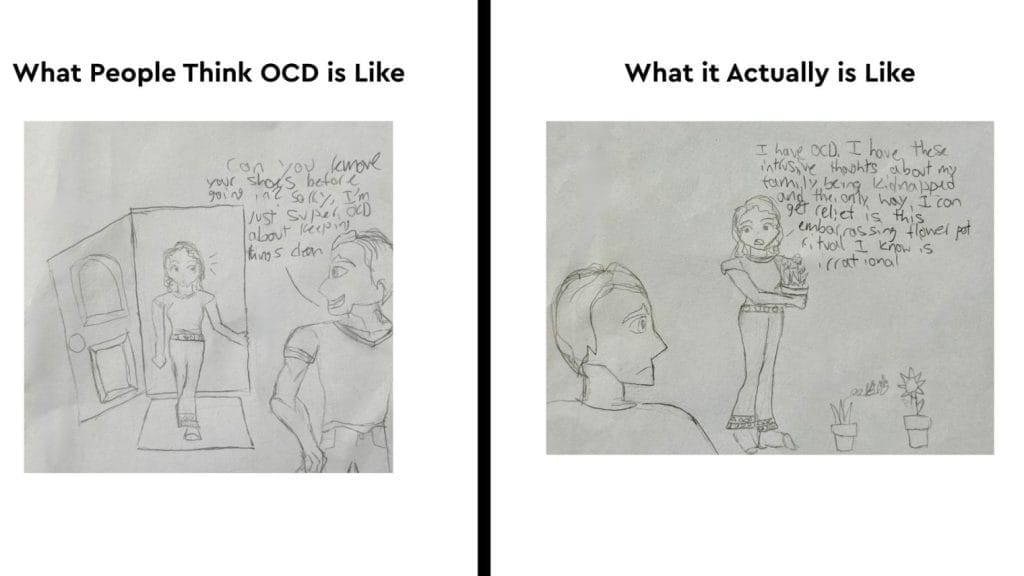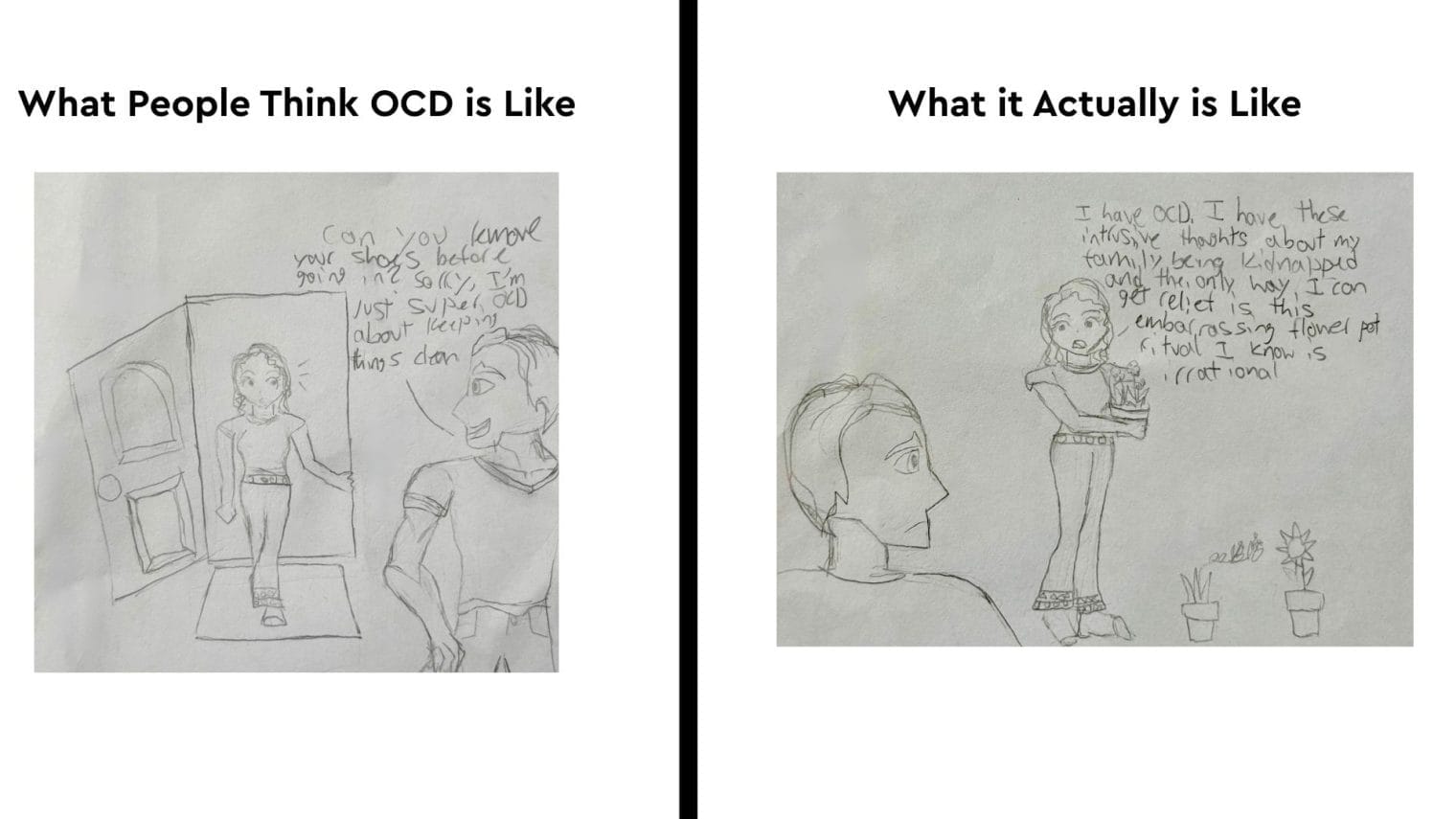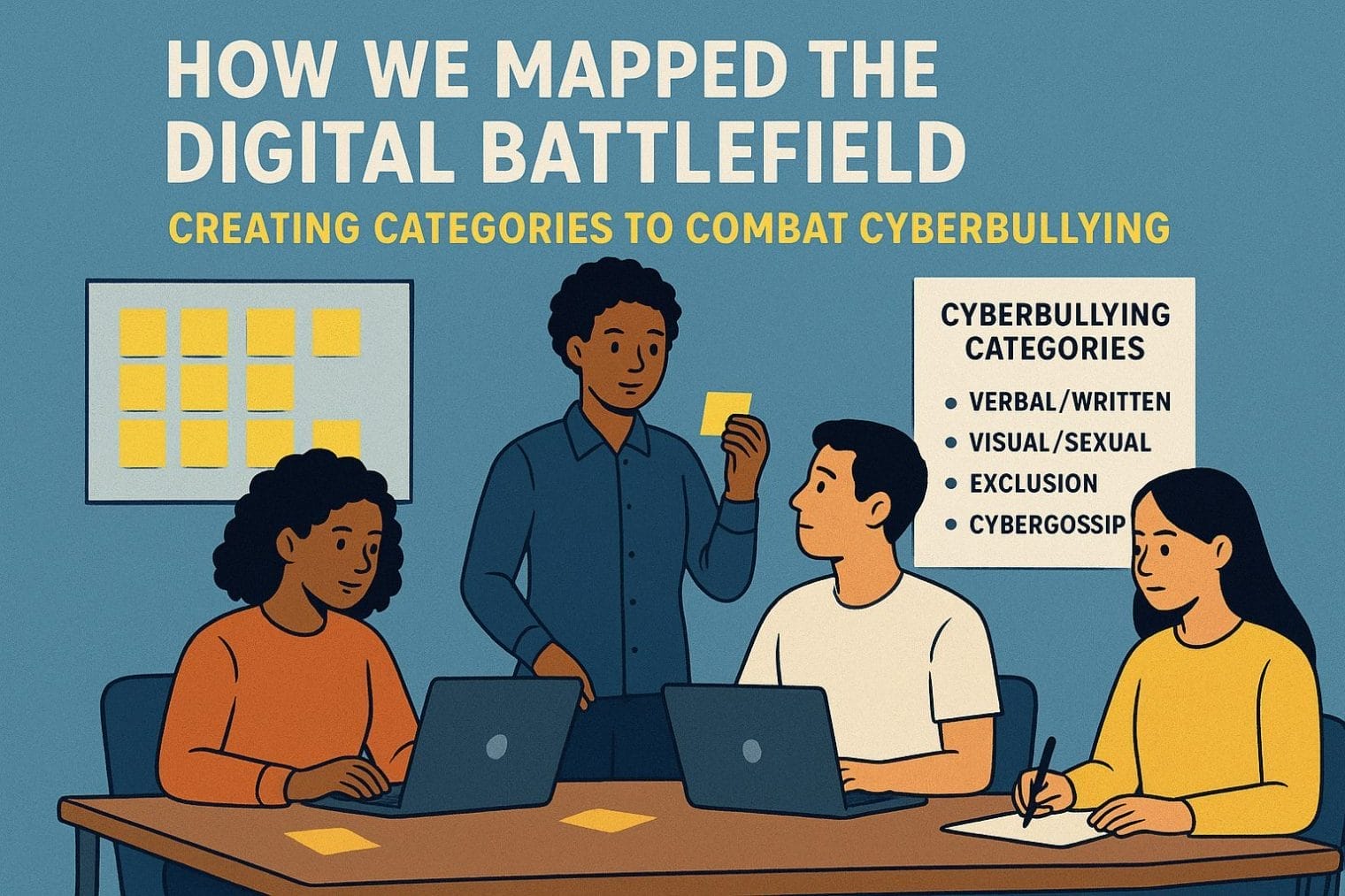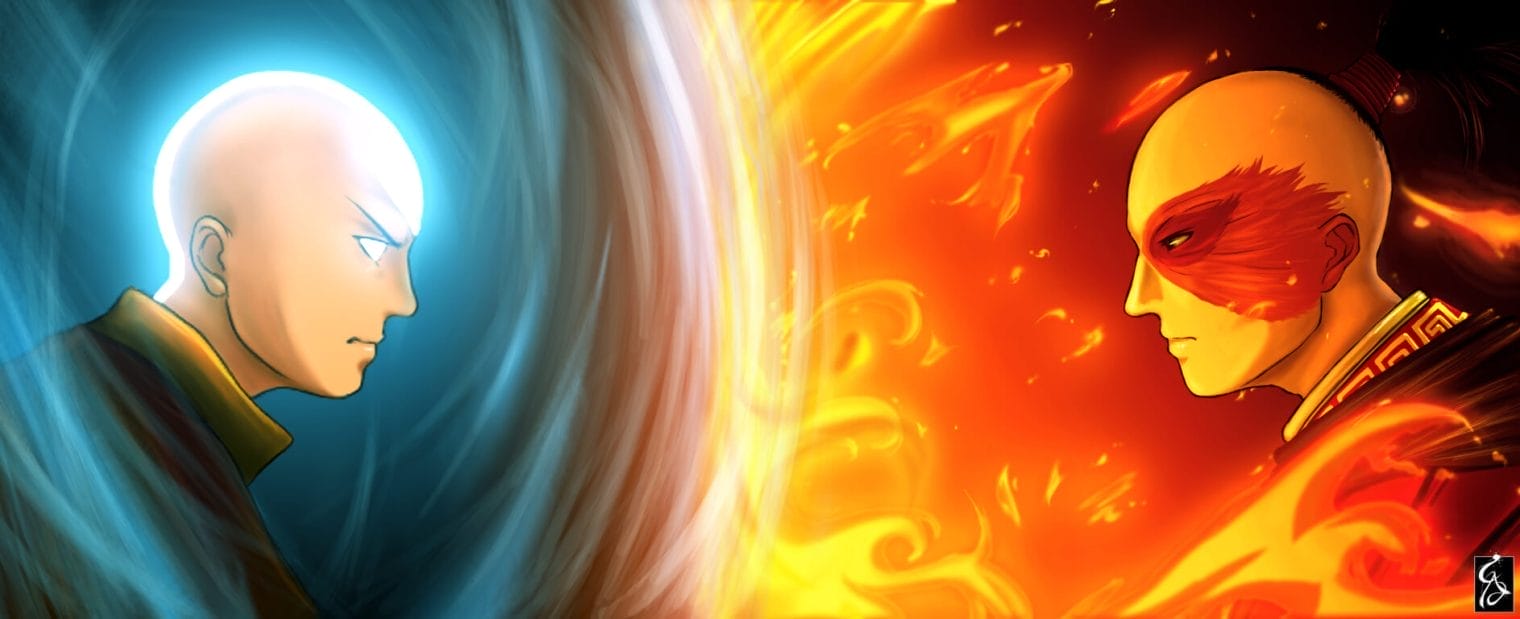This story takes place several months ago back when school was still on going. So I was sitting with my friends’ friend group (I say this because although I was friends with some of the guys on the table, most of them were just friends of my friends), when the subject of a certain girl we’ll call Ariel came up. For some context, Ariel and I are in the same special education class. However, Ariel needs more help in order to do well in school. She’s got good grades, but she doesn’t take it well when things change or when things don’t go the way she expected them to be. This can lead to her frustration boiling over and having a lot of temper tantrums. I learned from the conversation that one of the guys (Henry) shares a class with Ariel. He said that she was really weird, really scary, and really autistic. To punctuate his point, he said “She’s got 4 times the autism of this table”, to which another guy, Derek, chimed in “Yeah, but you’re like, 75% of that autism.” I was very confused at this point, so I asked for some clarifying information. The chat went like this:
Me: Wait, Henry, you’re autistic?
Henry: Nah bro.
Me: But I’m autistic. I have autism. Surely that means technically I am more autistic than you?
Derek: No offense Bianca, but Henry has more autism than you even though you’re autistic.
Let me rephrase the conversation. Henry does not have autism. I have autism. Henry somehow has more autism than me, according to him and his friends. The logic doesn’t really make sense in this one. It’s like treating autism as though it’s some kind of normal adjective like “impatient”.
Unfortunately, this isn’t the first time I’ve seen the words “autism” and “autistic” be used in that way, nor is it the first time I’ve heard of “being autistic without actually having autism”. It sometimes comes up in memes. Let me show you.


I don’t think it’s possible for cats to be autistic.
Why do people say stuff like that? I have no idea. I have two hypotheses: because autism is now being turned into a new word synonymous with “weird and socially awkward”, or because a lot of people are self-diagnosing themselves with autism, and now everybody can be “a little autistic”. I’ll start by explaining the first hypothesis in this blog post. I’ll explain the second one in another blog post.
“Autism = Weird and socially awkward”
Social media rewards extreme behavior. That’s the reason why trends like the “Tide Pod challenge” or the “choking challenge” are so popular. They’re far out there and crazy, which is why algorithms give them so much exposure. But this doesn’t just apply to videos or streaming platforms though. Like I said before, social media rewards extreme behavior in everything, everyday language and texts included. Having a dislike for something doesn’t cut it anymore, you have to say that you “hate” it. Words like “can’t concentrate”, “sad”, “nitpicky”, or “oddball” are too bland now. People usually don’t look into a thesaurus for stronger words than those, so they choose what’s easy. “Sad” becomes “depressed”, “can’t concentrate” becomes “ADHD”, “nitpicky” becomes “so OCD” and “oddball” becomes “autistic”. That’s where sentences like “Bro, I’m so autistic right now” and “Sorry for asking you to clean up, I’m a little OCD” come from.
I think that those types of sentences are demeaning to the people who actually have OCD or ADHD or autism or depression. As a person with autism and ADHD, I certainly find it offensive!
Sadness is an emotion that all people will experience at least once in their lives. But it is not the same as depression. Research shows that depression is deeper than just sadness; it lasts for much longer than a few hours or a day, and has more debilitating symptoms. People with OCD don’t actually like doing their compulsive rituals. They’re aware of how irrational the rituals are, and they’re only compelled to do it to stop having horrible obsessions. Most people with OCD would rather be doing something else.

Some people disagree with me, saying that it doesn’t matter if the names of disorders are used flippantly. “Sticks and stones may break my bones, but words will never hurt me” and “Words are just words” (I often hear the second one in defense of why people should be allowed to swear whenever they want). Tell that to all the people who killed themselves over “just words”. Words are powerful; they can outlast the people who say them by leaps and bounds, start wars, or change the course of a person’s life. But words can also be dangerous, which is why they should be used with caution.
Last but not least, I saved autism and ADHD, the two conditions I am diagnosed with. I can understand why some people would use the word ADHD as a way to describe “can’t concentrate”. Social media, especially with short clips such as TikTok and Instagram reels, have been shortening attention span. However, I still think the word “ADHD” should not be taken lightly, even if it is a common disorder.
On another note but with autism, even if social media makes autism memes and brings more light onto autistic individuals, the word should not be thrown around like the newest buzzword. Believe it or not, having autism and/or having ADHD isn’t as amazing as the media depicts it to be. For me at least, having autism and ADHD is difficult to live with. I’ve lost count of the times I feel like screaming at myself because my ADHD again got in the way of me being productive, or how many times people ditched me for my autism on account of being too “weird”. My autism and ADHD is more than just being fidgety and quirky. Yet the internet reduces it to that through memes, overgeneralizations, and misinformation. That is the reason why I don’t like it when people say things like “Bro, I’m so autistic right now” and “I was like, so depressed for a second there”. It distorts the true meaning of having the disorder, making it seem like it’s easy or even “trendy” to have, and degrades the people who have it and the struggles they have gone through.
Citations (For Part 1 and 2)
World Health Organization. (2023, March 31). Depressive Disorder (depression). World Health Organization. https://www.who.int/news-room/fact-sheets/detail/depression
Sawchuk, C. (2022, October 14). Depression (Major Depressive Disorder). Mayo Clinic; Mayo Foundation for Medical Education and Research. https://www.mayoclinic.org/diseases-conditions/depression/symptoms-causes/syc-20356007
CDC. (2023, August 23). Sadness and Depression | How Right Now | Centers for Disease Control and Prevention. Www.cdc.gov. https://www.cdc.gov/howrightnow/emotion/sadness/index.html
Mayo Clinic. (2023, December 21). Obsessive-Compulsive disorder (OCD). Mayo Clinic. https://www.mayoclinic.org/diseases-conditions/obsessive-compulsive-disorder/symptoms-causes/syc-20354432
International OCD Foundation. (2023). What is OCD? International OCD Foundation. https://iocdf.org/about-OCD/
CDC. (2024, October 23). About attention-deficit / hyperactivity disorder (ADHD). Attention-Deficit / Hyperactivity Disorder (ADHD); CDC. https://www.cdc.gov/adhd/about/index.html
Mayo Clinic. (2023, January 25). Adult Attention-Deficit/Hyperactivity Disorder (ADHD) – Symptoms and Causes. Mayo Clinic. https://www.mayoclinic.org/diseases-conditions/adult-adhd/symptoms-causes/syc-20350878
WHO. (2023, November 15). Autism Spectrum Disorders. World Health Organization; World Health Organization. https://www.who.int/news-room/fact-sheets/detail/autism-spectrum-disorders
NHS. (2022). What Is autism? NHS; NHS. https://www.nhs.uk/conditions/autism/what-is-autism/
American Academy of Pediatrics. (2020, September 25). Dangerous Internet Challenges – Understanding their Appeal. HealthyChildren.org. https://www.healthychildren.org/English/family-life/Media/Pages/Dangerous-Internet-Challenges.aspx
Clinic, C. (2025, May 21). Why Self-Diagnosis Is Dangerous (and What To Do Instead). Cleveland Clinic. https://health.clevelandclinic.org/dangers-of-self-diagnosis
Jaramillo, J. (2023, April 10). Down the rabbit hole of self-diagnosis in mental health. University of Colorado Denver. https://www.ucdenver.edu/student/stories/library/healthy-happy-life/down-the-rabbit-hole-of-self-diagnosis-in-mental-health





Leave a Reply